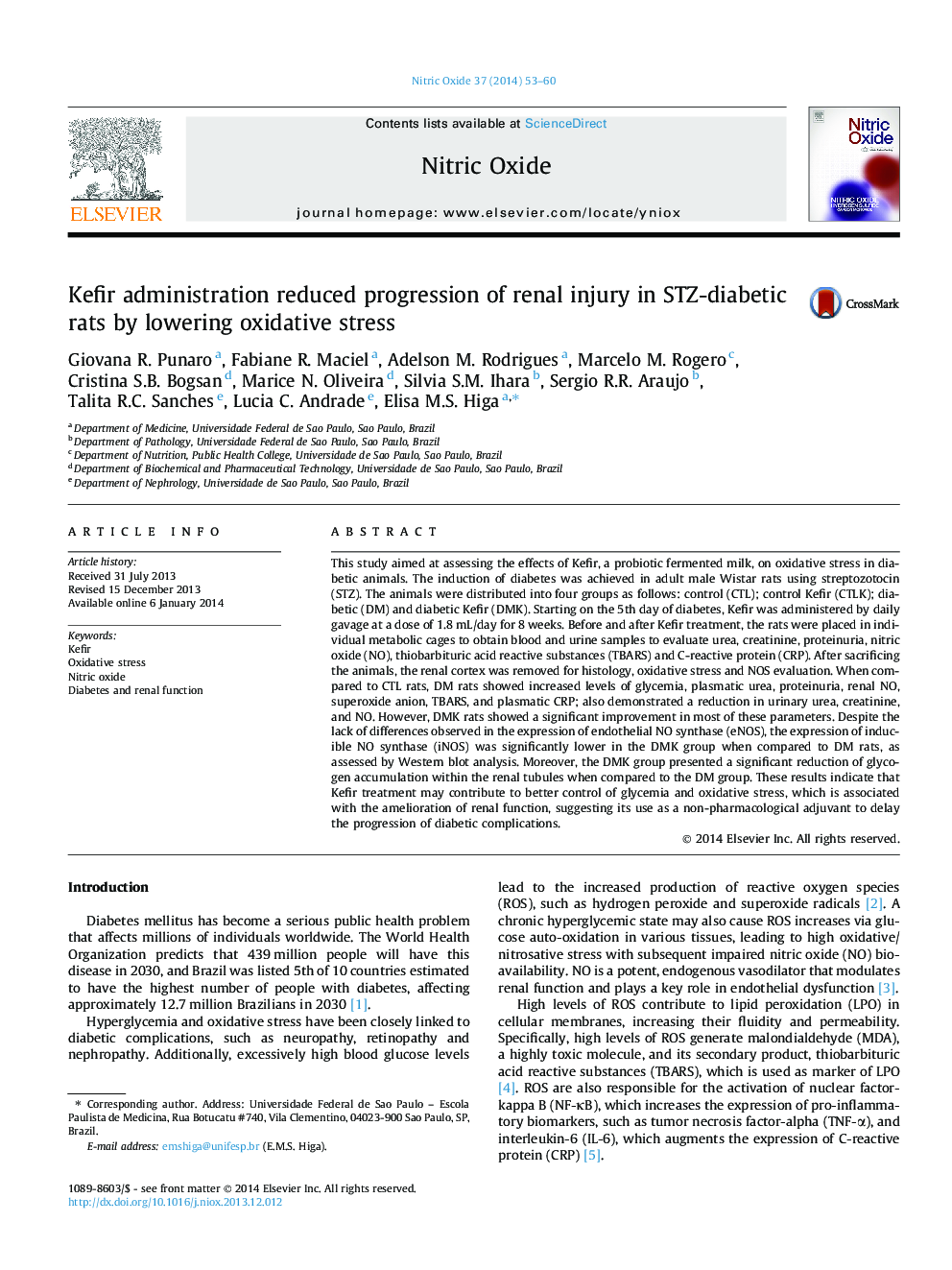| Article ID | Journal | Published Year | Pages | File Type |
|---|---|---|---|---|
| 8345797 | Nitric Oxide | 2014 | 8 Pages |
Abstract
This study aimed at assessing the effects of Kefir, a probiotic fermented milk, on oxidative stress in diabetic animals. The induction of diabetes was achieved in adult male Wistar rats using streptozotocin (STZ). The animals were distributed into four groups as follows: control (CTL); control Kefir (CTLK); diabetic (DM) and diabetic Kefir (DMK). Starting on the 5th day of diabetes, Kefir was administered by daily gavage at a dose of 1.8Â mL/day for 8Â weeks. Before and after Kefir treatment, the rats were placed in individual metabolic cages to obtain blood and urine samples to evaluate urea, creatinine, proteinuria, nitric oxide (NO), thiobarbituric acid reactive substances (TBARS) and C-reactive protein (CRP). After sacrificing the animals, the renal cortex was removed for histology, oxidative stress and NOS evaluation. When compared to CTL rats, DM rats showed increased levels of glycemia, plasmatic urea, proteinuria, renal NO, superoxide anion, TBARS, and plasmatic CRP; also demonstrated a reduction in urinary urea, creatinine, and NO. However, DMK rats showed a significant improvement in most of these parameters. Despite the lack of differences observed in the expression of endothelial NO synthase (eNOS), the expression of inducible NO synthase (iNOS) was significantly lower in the DMK group when compared to DM rats, as assessed by Western blot analysis. Moreover, the DMK group presented a significant reduction of glycogen accumulation within the renal tubules when compared to the DM group. These results indicate that Kefir treatment may contribute to better control of glycemia and oxidative stress, which is associated with the amelioration of renal function, suggesting its use as a non-pharmacological adjuvant to delay the progression of diabetic complications.
Keywords
Related Topics
Life Sciences
Biochemistry, Genetics and Molecular Biology
Biochemistry
Authors
Giovana R. Punaro, Fabiane R. Maciel, Adelson M. Rodrigues, Marcelo M. Rogero, Cristina S.B. Bogsan, Marice N. Oliveira, Silvia S.M. Ihara, Sergio R.R. Araujo, Talita R.C. Sanches, Lucia C. Andrade, Elisa M.S. Higa,
